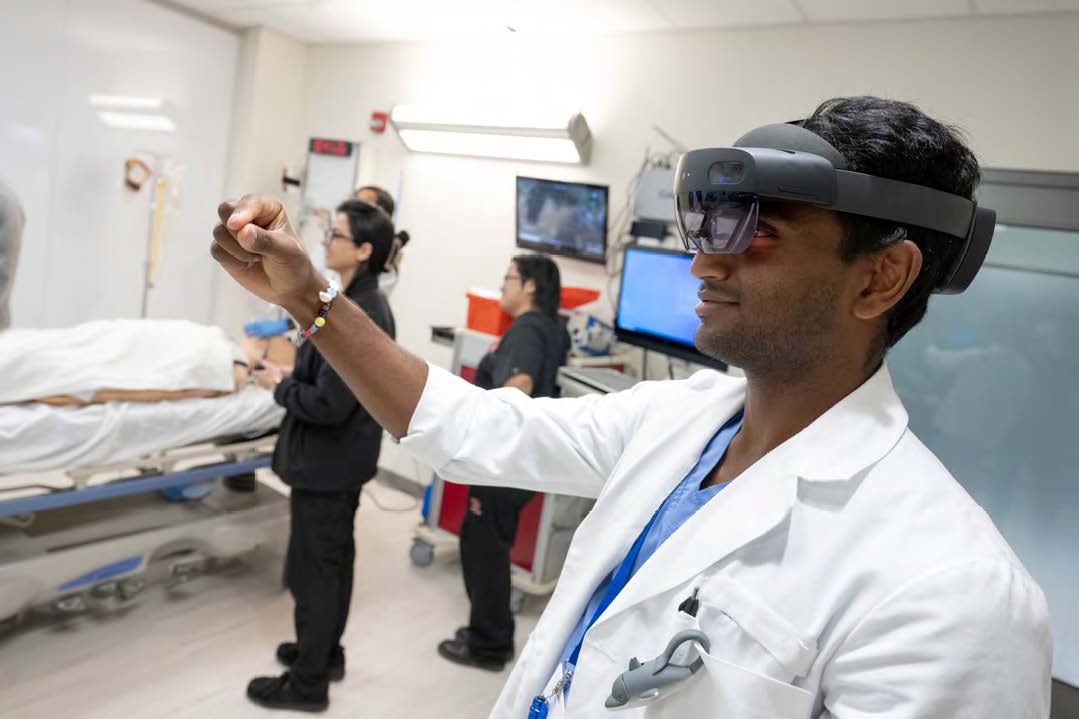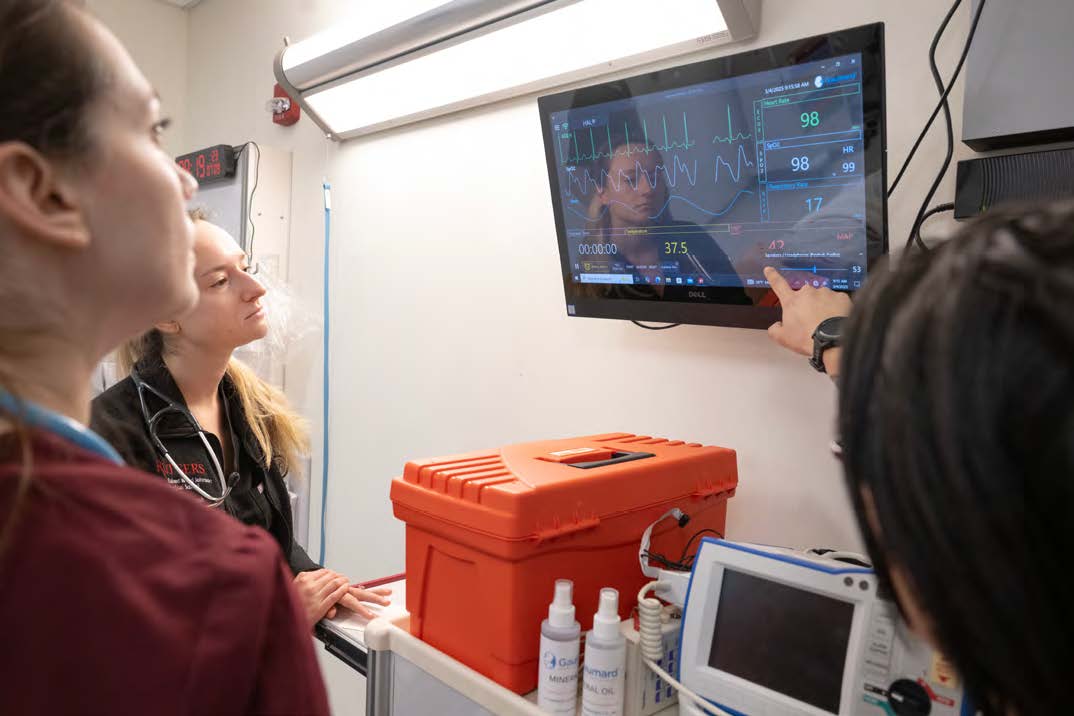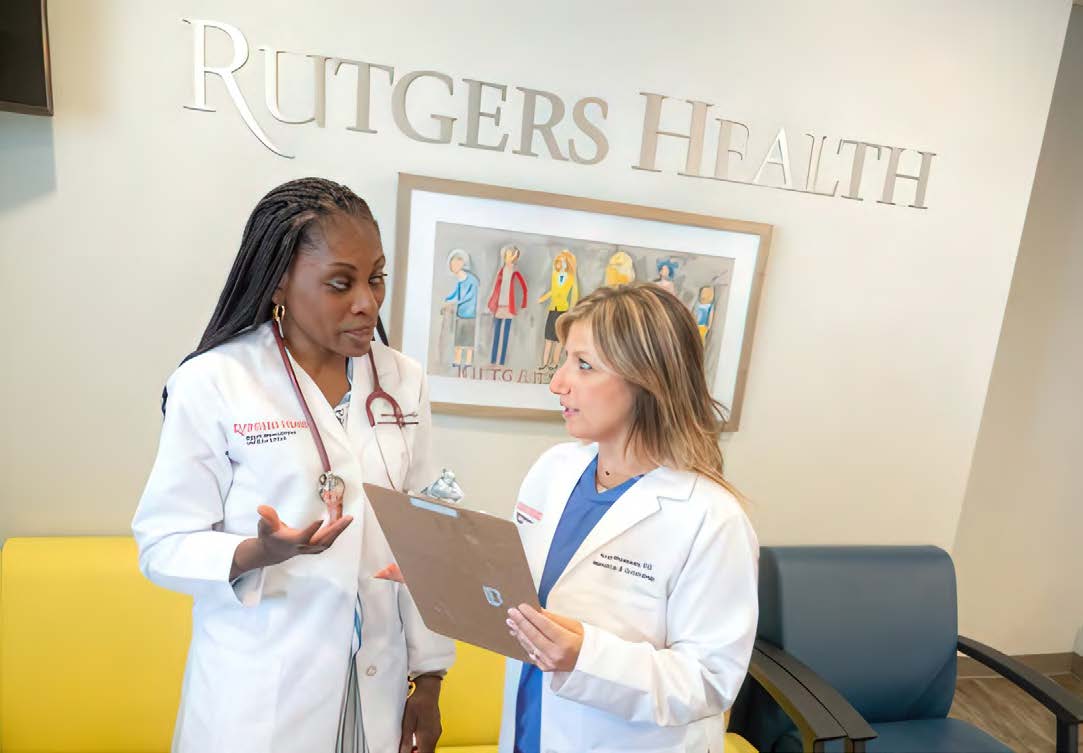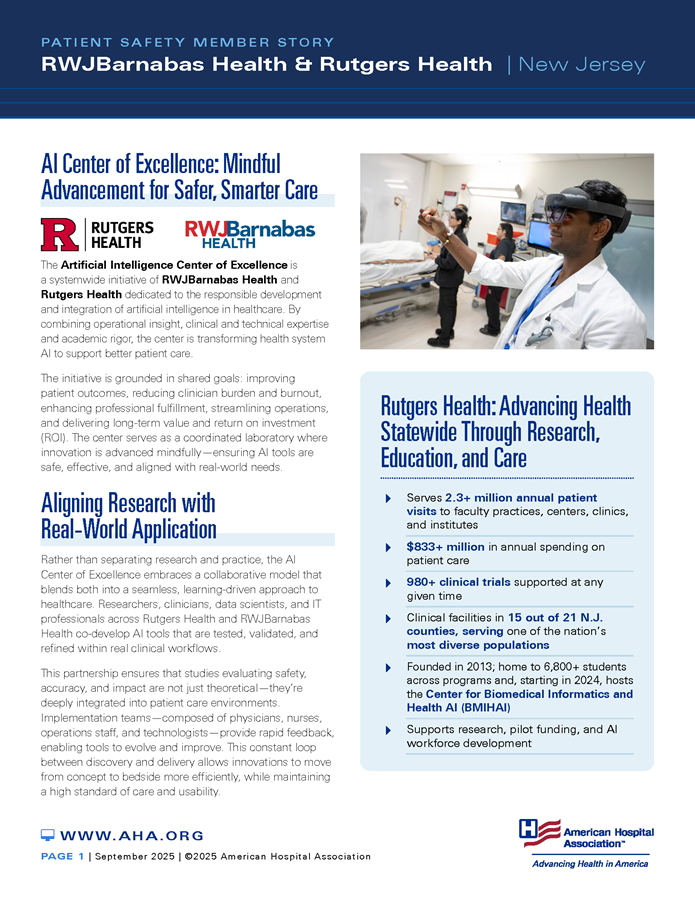

RWJBarnabas Health & Rutgers Health | New Jersey: AI Center of Excellence
Patient Safety Member Story
AI Center of Excellence: Mindful Advancement for Safer, Smarter Care


The Artificial Intelligence Center of Excellence is a systemwide initiative of RWJBarnabas Health and Rutgers Health dedicated to the responsible development and integration of artificial intelligence in healthcare. By combining operational insight, clinical and technical expertise and academic rigor, the center is transforming health system AI to support better patient care.
The initiative is grounded in shared goals: improving patient outcomes, reducing clinician burden and burnout, enhancing professional fulfillment, streamlining operations, and delivering long-term value and return on investment (ROI). The center serves as a coordinated laboratory where innovation is advanced mindfully—ensuring AI tools are safe, effective, and aligned with real-world needs.

Aligning Research with Real-World Application
Rather than separating research and practice, the AI Center of Excellence embraces a collaborative model that blends both into a seamless, learning-driven approach to healthcare. Researchers, clinicians, data scientists, and IT professionals across Rutgers Health and RWJBarnabas Health co-develop AI tools that are tested, validated, and refined within real clinical workflows.
This partnership ensures that studies evaluating safety, accuracy, and impact are not just theoretical—they’re deeply integrated into patient care environments. Implementation teams—composed of physicians, nurses, operations staff, and technologists—provide rapid feedback, enabling tools to evolve and improve. This constant loop between discovery and delivery allows innovations to move from concept to bedside more efficiently, while maintaining a high standard of care and usability.
Rutgers Health: Advancing Health Statewide Through Research, Education, and Care
- Serves 2.3+ million annual patient visits to faculty practices, centers, clinics, and institutes
- $833+ million in annual spending on patient care
- 980+ clinical trials supported at any given time
- Clinical facilities in 15 out of 21 N.J. counties, serving one of the nation’s most diverse populations
- Founded in 2013; home to 6,800+ students across programs and, starting in 2024, hosts the Center for Biomedical Informatics and Health AI (BMIHAI)
- Supports research, pilot funding, and AI workforce development

Predictive Model AI in Action
One of the most impactful tools deployed through the Center is the Clinical Deterioration Index (CDI)—a predictive AI algorithm that continuously analyzes EMR data such as vitals, labs, and clinical notes to identify early signs of patient decline. Operating in the background of routine care, the CDI has enabled clinicians to intervene earlier, often 24 hours before visible symptoms emerge, improving patient safety and reducing adverse events. The CDI has been associated with an 18.6% reduction in mortality, underscoring the power of AI-enabled predictive, real-time analytics.
Ambient AI and the Future of Documentation
In addition to predictive models, the health system is piloting ambient AI tools that support clinical documentation through passive voice capture of the provider-patient conversation. These tools allow the AI to listen to the interaction in real time and generate structured notes for the provider review. This approach allows the clinician to focus fully on the patient, fostering stronger rapport and engagement, while the AI handles documentation in the background.
“People are really excited about the AI tools. They are reducing administrative tasks that have been taking providers away from that essential role of working with the patient directly for a long time. So, all in all, this has been well received. We're introducing more AI tools because these tools have, to date, been effective.”
Amy Rockman
Director, Artificial Intelligence Center of Excellence, Rutgers Health & RWJBarnabas Health
By reducing the administrative burden, these tools offer the potential to decrease cognitive load, improve work-life balance, and increase ROI by streamlining one of the most time-consuming aspects of clinical care. When carefully fine-tuned and validated, these AI-generated notes also lead to more complete and standardized documentation—ultimately enhancing patient safety, quality of care, and communication across the care team.
RWJBarnabas Health: New Jersey’s Largest Academic Health System
- 14 hospitals, including 12 acute care hospitals, a behavioral health center and Children’s Specialized Hospital
- 700+ patient care locations
- More than 44,000 employees, and over 9,000 physicians
- Over 3 million patients treated annually
- Leader in care quality, access, and clinical innovation
- Home to nationally ranked Robert Wood Johnson University Hospital
Coordinated Oversight and Measurable Impact
The AI Center of Excellence is guided by a joint AI Executive Committee with leaders from both institutions, ensuring each effort aligns with clinical priorities, ethical standards, and strategic goals. Governance is tightly integrated to support responsible implementation and systemwide accountability.
Impact is tracked through a dual lens:
- Direct outcomes: mortality, ICU admissions, fall rates
- Indirect outcomes: clinician documentation time, staff burnout, workflow efficiency, and return on investment (ROI)
All AI tools deployed through the Center are subject to ongoing fine-tuning, monitoring, and clinical validation—a critical requirement for maintaining trust, safety, and long-term effectiveness. This scientific rigor is part of what makes the initiative both impactful and sustainable.

Moving AI in Health Forward: Enabling Infrastructure
To support the continued growth of AI in health, Rutgers Health and RWJBarnabas Health have built a collaborative infrastructure that brings together departments across engineering, informatics, and medicine. The center partners closely with the Rutgers Department of Computer Science, ensuring that algorithm development remains both technically advanced and clinically relevant.
Additionally, the Center for Biomedical Informatics and Health AI (BMIHAI)—a Roadmaps-funded initiative—supports AI in this healthcare focused environment through pilot grants and seed funding, interdisciplinary AI training and workforce development, AI adoption roadmaps and implementation support, research symposia and seminar programming.
These efforts ensure the system can scale innovations responsibly while building the next generation of AI-informed healthcare leaders.
“Harnessing the power of artificial intelligence, BMIHAI will transform the way we conduct research and significantly enhance our ability to provide personalized, data-driven care.”
Brian L. Strom, MD, MPH
Chancellor, Rutgers Health
A Model for the Future of Evidence-Informed Care Delivery
By fostering a culture of shared learning and continuous improvement, RWJBarnabas Health and Rutgers Health are not only using AI to improve care—they are redefining how care is delivered. With a focus on safety, provider well-being, operational performance, and value, this model is a blueprint for healthcare systems nationwide seeking to responsibly modernize through AI advancement.


